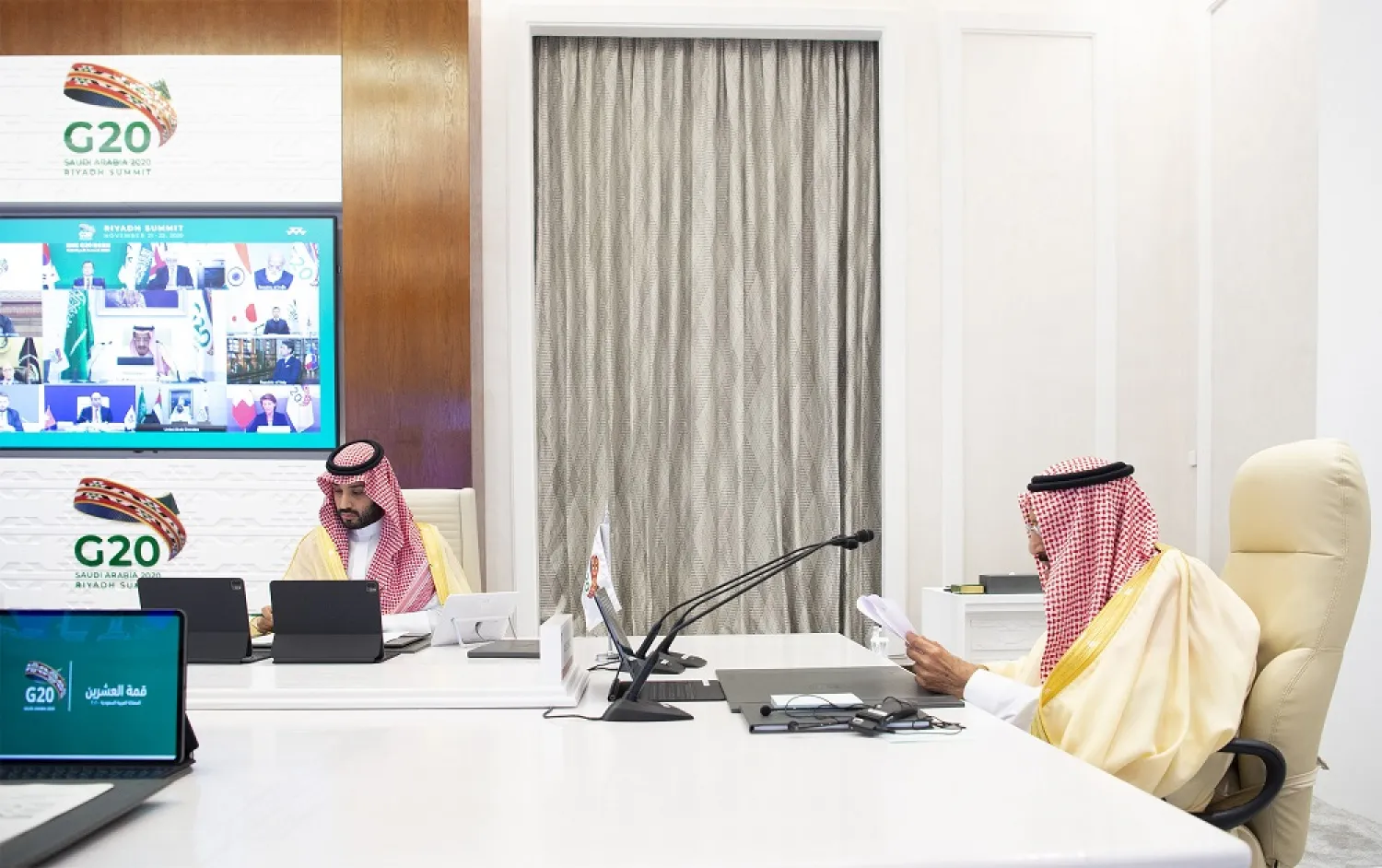Leaders of the world's 20 biggest economies said on Sunday they would ensure an affordable and fair distribution of COVID-19 vaccines, drugs and tests around the world so that poorer countries were not left out, according to a final summit communique.
After their two-day virtual summit in Saudi Arabia, they said they supported a global project for vaccines, tests and therapeutics - called Access to COVID-19 Tools (ACT) Accelerator - and its COVAX facility to distribute vaccines.
"We will spare no effort to ensure their affordable and equitable access for all people, consistent with members’ commitments to incentivize innovation," the leaders declared. "We recognize the role of extensive immunization as a global public good."
“We stand united in our conviction that coordinated global action, solidarity, and multilateral cooperation are more necessary today than ever to overcome the current challenges and realize opportunities of the 21st century for all by empowering people, safeguarding the planet and shaping new frontiers,” they stressed.
“While the global economy experienced a sharp contraction in 2020 due to the impact of the COVID-19 pandemic, global economic activity has partially picked up as our economies gradually reopened and the positive impact of our significant policy actions started to materialize,” they noted.
“However, the recovery is uneven, highly uncertain and subject to elevated downside risks, including those arising from renewed virus outbreaks in some economies, with some countries reintroducing restrictive health measures,” they remarked.
“We underscore the urgent need to bring the spread of the virus under control, which is key to supporting global economic recovery. We are determined to continue to use all available policy tools as long as required to safeguard people’s lives, jobs and incomes, support the global economic recovery, and enhance the resilience of the financial system, while safeguarding against downside risks,” they declared.
“The G20 Action Plan sets out key principles and commitments to drive forward international economic cooperation as we navigate this crisis and take steps to support the recovery and achieve strong, sustainable, balanced and inclusive growth,” they continued.
Moreover, they said they were committed to implementing the Debt Service Suspension Initiative (DSSI) including its extension through June 2021, allowing DSSI-eligible countries to suspend official bilateral debt service payments.
“Given the scale of the COVID-19 crisis, the significant debt vulnerabilities and deteriorating outlook in many low-income countries, we recognize that debt treatments beyond the DSSI may be required on a case-by-case basis,” the leaders continued.
“The social and economic impact of the pandemic makes it even more urgent to accelerate efforts to end poverty and tackle inequalities and work to ensure that no-one is left behind.”
They noted that the pandemic “continues to have disproportionate economic and social impact on the most vulnerable segments of society, reinforcing the need to enhance access to opportunities for all. We will continue our efforts to reduce inequalities, reaffirming our previous commitments to promote inclusive growth.”
“Tackling the devastating impact of the pandemic on labor markets remains our priority as millions of workers continue to face job and income loss,” they vowed.
On the empowerment of women, they stated that they have been “disproportionately affected by the crisis, we will work to ensure that the pandemic does not widen gender inequalities and undermine the progress made in recent decades.”
“Recalling relevant UN declarations, processes, and calls to action to empower women and girls, we reaffirm the importance of women’s and girls’ empowerment as a cross-cutting issue in all aspects of our policies and recognize that women are a key driver of economic growth.”
On trade, the G20 leader said: “Supporting the multilateral trading system is now as important as ever. We strive to realize the goal of a free, fair, inclusive, non-discriminatory, transparent, predictable, and stable trade and investment environment, and to keep our markets open.”
On climate, they said: “Preventing environmental degradation, conserving, sustainably using and restoring biodiversity, preserving our oceans, promoting clean air and clean water, responding to natural disasters and extreme weather events, and tackling climate change are among the most pressing challenges of our time. As we recover from the pandemic, we are committed to safeguarding our planet and building a more environmentally sustainable and inclusive future for all people.”
“We stress our continued resolve to ensure a stable and uninterrupted supply of energy to achieve economic growth as we respond to the challenges brought about by the pandemic,” they stressed.
“We endorse the Circular Carbon Economy (CCE) Platform, with its 4Rs framework (Reduce, Reuse, Recycle and Remove), recognizing the key importance and ambition of reducing emissions, taking into account system efficiency and national circumstances,” they announced. “The CCE is a voluntary, holistic, integrated, inclusive, pragmatic, and complementary approach to promote economic growth while enhancing environmental stewardship through managing emissions in all sectors including, but not limited to, energy, industry, mobility and food.”
“In advance of the United Nations Framework Convention on Climate Change (UNFCCC) COP26 in Glasgow and the UNCBD COP15 in Kunming, we reiterate our support for tackling pressing environmental challenges, such as climate change and biodiversity loss, as we promote economic growth, energy security and access for all, and environmental protection. Signatories to the Paris Agreement who confirmed at Osaka their determination to implement it, once again, reaffirm their commitment to its full implementation,” they added.
They said they were determined to support African countries in overcoming the coronavirus crisis, including by exploring more sustainable financing options. Debt relief for Africa will be an important theme of the Italian presidency of the G20 in 2021.
The leaders thanked Saudi Arabia for hosting a successful Riyadh Summit and its contribution to the G20 process. “We look forward to our next meetings in Italy in 2021, Indonesia in 2022, India in 2023 and Brazil in 2024,” they added.









